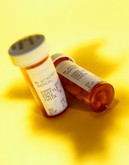Generics
Integrated prescriber dispensing can slow generic growth
Countries such as China, Japan and Taiwan which have public health insurance systems, and which allow physicians to both prescribe and dispense drugs themselves, are the most resistant to generics competition, according to a study by two Taiwanese health economists from the National Cheng-Kung University and Academia Sinica, Taipei, Taiwan [1].
Does switching to generic anti-epileptic drugs lead to loss of seizure control
Patients with epilepsy may have a higher risk of seizures if they switch from their brand-name medication to generic anti-epileptic drugs (AEDs). This is the message often heard from clinicians when expressing their concern over generic versions of narrow therapeutic index (NTI) drugs, one class of which is those used to manage the symptoms of epilepsy.
Pfizer seeks 6-month paediatric exclusivity for Lipitor
Pfizer is poised for a Lipitor (atorvastatin) reprieve in Europe. The company has asked for six months of additional exclusivity in most EU countries under regulations designed to promote drug trials for children. The extension could be worth almost US$800 million as it staves off generic competition until May 2012.
Pilot programmes between EMA, FDA and TGA a success
Two pilot programmes of collaboration on inspections between EMA, FDA and the Australian Therapeutic Goods Administration (TGA) have concluded successfully, according to two reports published by the EMA on 2 August 2011. The two programmes were carried out with the intention of increasing international regulatory collaboration in order to increase drug quality and safety.
Switching from a brand-name antiepileptic drug to a generic is not associated with a higher risk of seizures
A report in Clinical Pharmacology and Therapeutics provides further evidence that patients with epilepsy do not have a higher risk of seizures if they switch from their brand-name anti-epileptic drugs (AEDs) to the generic version [1].
How successful is the reference pricing system in Belgium
The main aim of a reference pricing system (RPS) is to provide generic medicines at the lowest cost to the state and individuals. This article explains how RPSs work and asks how the Belgian system might be improved to better fulfil its main objective.
GPs in the UK to be banned from prescribing branded statins
General Practitioners (GPs) in Cambridgeshire, UK, have been told by the national health service (NHS) that they are considering proposals to ban prescribing of branded statins in favour of cheaper generic alternatives according to a report in Pulse.
Benefits of generics called into question
The benefits associated with generic prescription drugs have been called into question in an article published in the British Medical Journal (BMJ) [1].
UK Government sues Servier for generic blocking
The UK’s Health Secretary, Mr Andrew Lansley, has issued a GBP 220 million (Euros 246 million; US$360 million) lawsuit against French drug company Servier for allegedly ‘abusing’ its dominant position and delaying rivals from launching generic versions of its angiotensin-converting enzyme inhibitor, perindopril (Coversyl).
Epilepsy: medical concerns of prescribing generics
Generic economics
Generic medications are generally cheaper than their branded product counterparts and so prescribing these is encouraged as a cost-containment strategy in the management of healthcare resources. Encouraging the use of generic drugs is widely considered to be the most simple and effective way of reducing medication expenditure.













